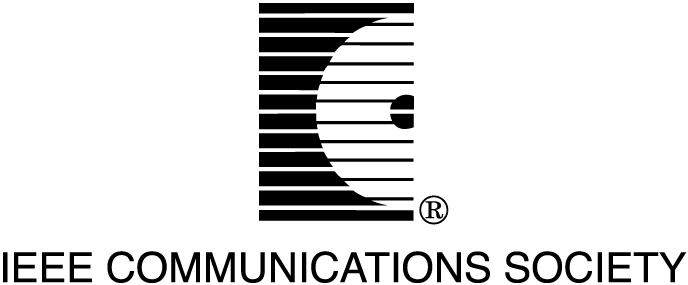Program
Monday, March 3
Monday, March 3, 07:45 - 09:00
Oral Presentation: Conference Registration
Monday, March 3, 09:00 - 12:30
Tutorial Presentation: Tutorial 1 "Challenges of and Approaches to Hard - Soft Information Fusion"
Tutorial Presentation: Tutorial 2 "Designing for Situational Awareness in Virtual Environments"
Monday, March 3, 13:30 - 17:00
Tutorial Presentation: Tutorial 3 "Introduction to Social Network Analysis"
Tutorial Presentation: Tutorial 4 "Threat Assessment with Technical Intelligence Applications"
Monday, March 3, 18:00 - 20:00
Oral Presentation: Welcome Reception
Tuesday, March 4
Tuesday, March 4, 07:00 - 07:45
Oral Presentation: Breakfast
Tuesday, March 4, 07:45 - 09:00
Keynote (Oral Presentation): Dr. Mica Endsley, Chief Scientist, USA Air Force, "Integrating Humans and Autonomous Systems: Achieving Smooth, Simple, & Seamless"
Tuesday, March 4, 09:00 - 10:30
Session S1 (Oral Presentation): Decision-Making
- Reexamining Information Fusion--Decision Making Inter-dependencies
- Accuracy and Effort of Decision Making Strategies with Incomplete Information
- Influence of Meta-Information on Decision-Making: Lessons Learned From Four Case Studies
Tuesday, March 4, 10:30 - 11:00
Oral Presentation: Coffee Break
Tuesday, March 4, 11:00 - 12:30
Session S2 (Oral Presentation): User Interfaces
- Decision-making in Abstract Trust Games: A User Interface Perspective
- Truth, Lies, and Data: Credibility Representation in Data Analysis
- Analysis on Visual Ergonomics of Instrument Display System Through Event-related-potential
Tuesday, March 4, 12:30 - 14:00
Oral Presentation: Lunch
Tuesday, March 4, 14:00 - 15:30
Session S3 (Oral Presentation): Human Perception
- Visual Estimation of Human Attributes: An Empirical Study of Context-Dependent Human Observation Capabilities
- The Use of Visual Cues to Determine the Intent of Cyclists in Traffic
- The Apparent Intelligence of a System as a Factor in Situation Awareness
Tuesday, March 4, 15:30 - 16:00
Oral Presentation: Coffee Break
Tuesday, March 4, 16:00 - 17:30
Session S4 (Oral Presentation): Human-Machine Systems
- Adaptive Real-Time Threat Assessment Under Uncertainty and Conflict
- Evaluation and Extension of the Cognitive Assistant System (COGAS) for User-Oriented Support of Air Target Identification
- Hybrid Cognitive Model for Semantic Discovery and Selection of Services
Tuesday, March 4, 18:00 - 20:00
Poster Presentation: Poster Session
- Introducing a Task Prioritization Tool to a Complex Supervisory Control Environment
- Dealing with Poorly Mapped Entities in Adaptive Object-Oriented World Modeling
- Situation Awareness for Violence Prevention on Campuses
- Task Models for Human-Computer Collaboration in Supervisory Control of Teams of Autonomous Systems
- Work Domain Analysis for Network Management Revisited: Infrastructure, Teams and Situation Awareness
- Weather-Monitoring Sensor Web for Supporting Situation Awareness
- Reducing Ambiguity in Indoor Tracking Using Point of Interest
- Measurement of Situation Awareness Among Diverse Agents in Cyber Security
- Dynamic Bandwidth Provisioning Using Markov Chain Based RSVP for Unmanned Ground Networks
- Distributed Spectrum Sensing Using Belief Propagation Framework
- Digital Policy Management Requirements and Architecture
- Distinguishing Analysis on Workload Peak and Overload Under Time Pressure with Pupil Diameter
- The Influence of Modality and Transparency on Trust in Human-Robot Interaction
- On Modeling Context in Situation Management
Wednesday, March 5
Wednesday, March 5, 07:00 - 07:45
Oral Presentation: Breakfast
Wednesday, March 5, 07:45 - 09:00
Keynote (Oral Presentation): Dr. Peter Hancock, Provost Distinguished Research Professor, University of Central Florida, "2. The Antecedents of Situation Awareness and its Future"
Wednesday, March 5, 09:00 - 10:30
Session S5 (Oral Presentation): Situation Awareness
- Textual Risk Mining for Maritime Situational Awareness
- Situation Awareness in Airport Environment Based on Semantic Web Technologies
- Modeling Impact of Attacks, Recovery, and Attackability Conditions for Situational Awareness
Wednesday, March 5, 10:30 - 11:00
Oral Presentation: Coffee Break
Wednesday, March 5, 11:00 - 12:30
Panel 1 (Oral Presentation): "Situation Awareness in Security Domains"
The aim of this panel discussion is to provide a better understanding of the key elements of situation awareness (SA) for those tasked with providing security. Panelists will address the three key components of SA envisioned by Dr. Mica Endsley (1995): perception of elements in the environment, the comprehension of their meaning, and projection to the near future. Panelists will address a number topics ranging from the current state of security technology, including the current and potential benefits of incorporating SA principles, to recommendations for enhancing the field. Panelists range from experience in physical security (protection of property or personnel) to cyber security. Examples include providing security for a warehouse/apartment complex, an operating base in Afghanistan, a bank, or an information system
Wednesday, March 5, 12:30 - 14:00
Oral Presentation: Lunch
Wednesday, March 5, 14:00 - 15:30
Session S6 (Oral Presentation): Understanding Situations
- Inferring Relations and Individuals Relevant to a Situation: An Example
- Staying Aware in an Evolving World — Specifying and Tracking Evolving Situations
- An Infrastructure for Distributed Rule-Based Situation Management
Wednesday, March 5, 15:30 - 16:00
Oral Presentation: Coffee Break
Wednesday, March 5, 16:00 - 17:30
Session S7 (Oral Presentation): Monitoring & Surveillance
- Modeling and Recognizing Situations of Interest in Surveillance Applications
- A Confabulation Model for Abnormal Vehicle Events Detection in Wide-Area Traffic Monitoring
- Mobility Estimation Using an Extended Kalman Filter for Unmanned Ground Vehicle Networks
Wednesday, March 5, 18:30 - 21:00
Oral Presentation: Conference Banquet
Thursday, March 6
Thursday, March 6, 07:00 - 07:45
Oral Presentation: Breakfast
Thursday, March 6, 07:45 - 09:00
Keynote (Oral Presentation): Prof. Leo Motus, Tallinn University of Technology, Some Situation Awareness Issues in Complex Cognitive Systems, their Sources and Potential Antidote
Thursday, March 6, 09:00 - 10:30
Session S8 (Oral Presentation): Data Analysis
- RankAOH: Context-driven Similarity-based Retrieval of Experiences in Cyber Analysis
- Ontology Building for Cognitive Bias Assessment in Intelligence
- Behavior Modeling in Physical and Adaptive Intelligent Services
- A Cognitive Group Hierarchy Game Theoretic Framework for Bandwidth Management
Thursday, March 6, 10:30 - 11:00
Oral Presentation: Coffee Break
Thursday, March 6, 11:00 - 12:30
Panel 2 (Oral Presentation): "Situation Awareness in Extreme Environments: Humanitarian Assistance and Disaster Relief"
The aim of this panel discussion is to explore the key elements of situation awareness (SA) within extreme environments. Extreme environments are considered to be complex, high stress, and/or demanding environments or occupations that often utilize human-technology systems. This panel will focus on the integration of SA as a means to advance humanitarian assistance and disaster relief. Examples include development of technology (e.g., robotics, automation, virtual reality, threat assessment technology), environmental risk and assessment (e.g., forest fires, hurricane relief, etc.), and communication of information including big data (e.g., cognitive radio networks, information fusion, network science, etc.).




